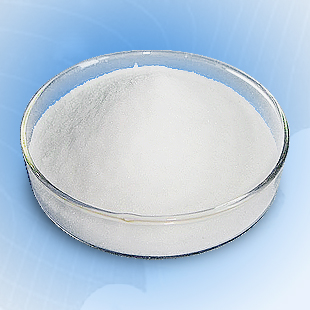Calcium Aspartate
Product description
Calcium aspartate is a chelated form of calcium, where calcium is bound to the amino acid aspartic acid. This chelation process enhances the absorption and bioavailability of calcium, making it more effective than some other forms of calcium supplementation. Calcium is an essential mineral that plays a crucial role in various bodily functions, including bone health, muscle function, and nerve transmission.
Importance of Calcium Aspartate:
Calcium is vital for the body, and the body cannot produce it on its own, so it must be obtained through the diet or supplementation. It is the most abundant mineral in the human body, with about 99% of it stored in the bones and teeth. The remaining 1% is found in the blood, muscles, and other tissues, where it performs numerous important functions.
Calcium aspartate is preferred by some individuals because it is generally more easily absorbed than other forms of calcium, such as calcium carbonate or calcium citrate. This is due to the chelation process, where the calcium is bound to aspartic acid, helping it be better utilized by the body.
Benefits of Calcium Aspartate as a Supplement:
Bone Health and Density:
- Strong Bones: Calcium is essential for maintaining bone strength and density. It helps prevent conditions like osteoporosis, a condition where bones become weak and fragile due to a lack of calcium. Calcium aspartate is particularly useful in supporting bone health because of its high bioavailability.
- Bone Growth and Remodeling: Calcium plays a significant role in bone formation, remodeling, and mineralization. Ensuring adequate calcium intake, particularly in growing children, adolescents, and postmenopausal women, helps maintain strong bones throughout life.
Muscle Function and Contraction:
- Muscle Contraction: Calcium is crucial for muscle function, including contraction and relaxation. When a nerve stimulates a muscle to contract, calcium is released, enabling the muscle fibers to contract. Calcium aspartate supports this process by ensuring sufficient calcium availability in the bloodstream.
- Prevention of Muscle Cramps: Adequate calcium levels can help prevent muscle cramps, which are often caused by an imbalance of calcium, magnesium, or potassium. For individuals with active lifestyles or athletes, calcium aspartate may be beneficial in reducing the occurrence of cramps or muscle spasms.
Nerve Function and Signal Transmission:
- Nerve Signal Transmission: Calcium is involved in the transmission of nerve signals. It helps regulate the release of neurotransmitters and the activation of nerve cells. This is important for cognitive function, mood regulation, and overall nervous system health.
- Prevention of Nerve Disorders: Proper calcium levels may help support the nervous system and reduce the risk of nerve-related issues, such as tingling or numbness, which can be a sign of calcium deficiency.
Heart Health:
- Regulation of Heartbeat: Calcium is important for maintaining normal heart function. It helps regulate the contraction and relaxation of the heart muscle. An imbalance in calcium levels can lead to arrhythmias (irregular heartbeats) or other cardiovascular issues.
- Blood Pressure Regulation: Some research suggests that calcium may help lower blood pressure, especially in individuals with hypertension. Adequate calcium intake, combined with other minerals like magnesium and potassium, can promote healthy blood pressure levels.
Hormonal Balance:
- Hormone Secretion: Calcium is involved in the release of various hormones, including insulin and parathyroid hormone (PTH). This helps maintain a balance in blood sugar regulation and other bodily functions.
- Support for Healthy Menstrual Cycles: Calcium plays a role in hormonal regulation and may support the management of premenstrual syndrome (PMS) symptoms, such as mood swings and irritability, by helping stabilize hormone levels.
Improved Absorption and Bioavailability:
- Enhanced Absorption: Calcium aspartate is chelated with aspartic acid, a naturally occurring amino acid. This chelation improves the absorption of calcium in the intestines, making it a more efficient form of supplementation than non-chelated calcium forms (such as calcium carbonate), which can be less bioavailable and cause digestive discomfort in some people.
- Gentle on the Stomach: Many people find that calcium aspartate is gentler on the digestive system compared to other forms of calcium, such as calcium carbonate, which can sometimes cause constipation or bloating.
Support for Teeth Health:
- Calcium is a vital component of teeth, helping to maintain their strength and structure. Calcium aspartate supplementation can support oral health by ensuring adequate calcium levels, which are important for preventing tooth decay and gum disease.
Potential Cognitive Benefits:
- Some studies suggest that calcium may have a role in cognitive health, including memory and learning. Adequate calcium levels may support brain function and help prevent age-related cognitive decline, though more research is needed in this area.
Forms of Calcium Aspartate Supplements:
Calcium aspartate is available in various forms, including tablets, capsules, and powders. It can be found as a standalone supplement or as part of a multivitamin or mineral formula. The dosage may vary depending on the individual’s age, gender, and health needs.


